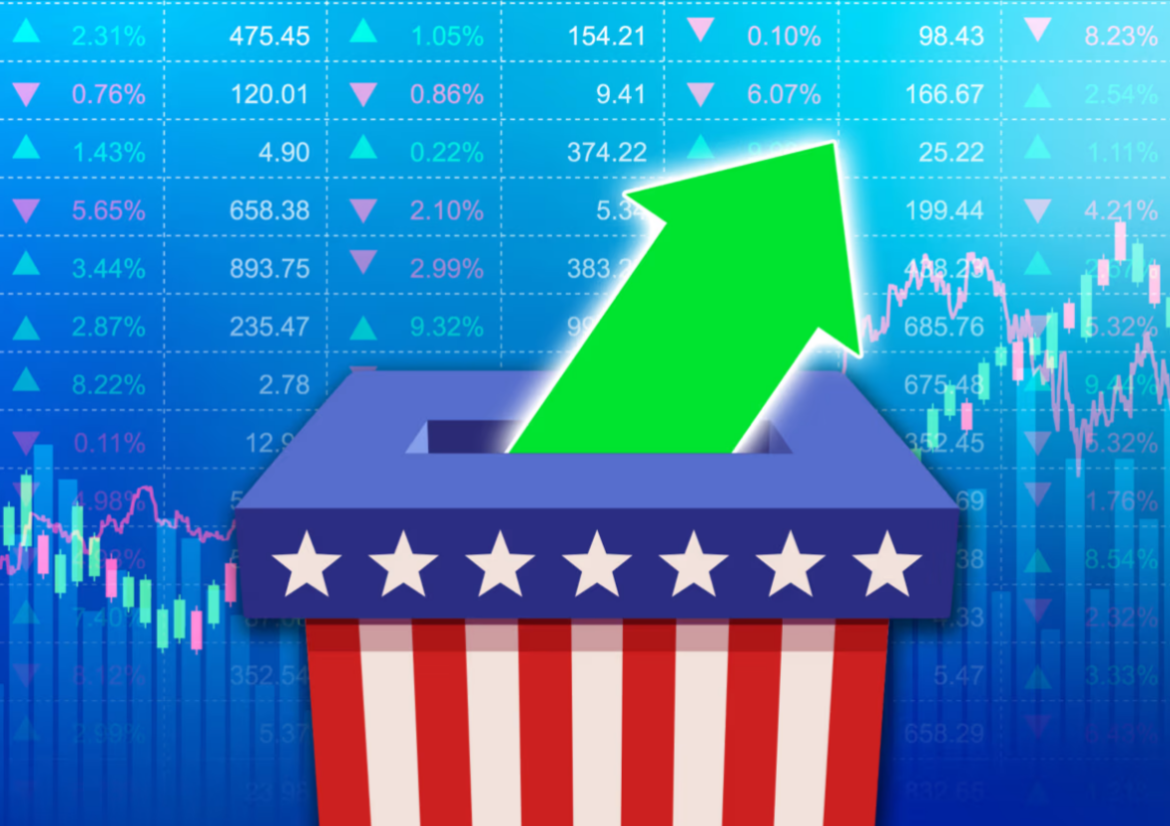The U.S. presidential elections are pivotal moments in the country’s political and economic landscape. Every four years, Americans head to the polls, and their decision can drastically shape the direction of the nation, particularly in terms of fiscal policies, regulatory changes, and international relations. For investors, U.S. elections aren’t just about politics—they can significantly influence the stock market, especially sector-specific stocks. These stocks, which belong to particular industries or sectors, often react to the policies and regulatory changes that come with a new administration. Understanding the impact of U.S. elections on these stocks is crucial for making informed investment decisions.
The Influence of U.S. Elections on Market Sentiment
Elections bring uncertainty, and uncertainty often leads to market volatility. Before and after an election, the stock market tends to become more sensitive to political developments. Investor sentiment fluctuates based on the perceived stability and economic vision of the candidates. Market participants continuously assess how policies proposed by different political parties will affect the economy and corporate earnings. When an election is close, the stock market often shows signs of nervousness, and stock prices may fluctuate in anticipation of the outcome.
Political parties in the U.S. generally have differing views on taxes, government spending, regulatory frameworks, and international trade, all of which can significantly influence certain sectors. For example, a Democrat-led administration might focus on healthcare reform and renewable energy investments, while a Republican administration may prioritise tax cuts and deregulation, affecting sectors differently. In the months leading up to an election, this uncertainty can drive fluctuations in the stock market as investors try to predict the direction of future policies. Navigate to this web-site for more information.
Sector-Specific Stocks: Key Areas Affected by Elections
The healthcare sector is one of the most directly impacted by elections, especially when it comes to debates over healthcare reform. A Democrat-led administration typically seeks to expand government-funded healthcare programs such as Medicare or Medicaid, which can benefit healthcare stocks by increasing demand for medical services. On the other hand, a Republican administration may aim to reduce the size of government programs, potentially reducing government spending on healthcare and altering the trajectory of the sector. Policies that regulate drug pricing or healthcare insurance can also significantly influence the performance of healthcare stocks, making this sector especially sensitive during election years.
The financial sector is also highly sensitive to changes in government policy, particularly about regulations, taxation, and interest rates. Banks and financial institutions tend to perform better when interest rates are high, as they can earn more from lending activities. Likewise, tax cuts, deregulation, and reduced corporate taxes often favour financial institutions, boosting their profitability. However, stringent financial regulations or proposals to raise taxes on corporations could dampen the prospects for financial stocks. The market’s reaction to these policy shifts can be pronounced, as seen during past election cycles where changes in administration have led to significant fluctuations in bank stocks and other financial services companies.
Technology stocks, especially those belonging to major players in Silicon Valley, are another area of focus during election years. Technology companies are particularly sensitive to policies around data privacy, antitrust enforcement, and international trade. A Republican-led government may favour deregulation of the tech industry, while a Democrat-led administration might propose stricter antitrust measures or more aggressive data privacy laws. Additionally, the ongoing trade war with China also influences tech stocks, as companies involved in international trade may see their stock prices fluctuate based on the perceived direction of trade policies. Election outcomes often dictate these regulatory frameworks, leading to significant shifts in technology stock performance.
Market Predictability: What to Expect in Future Election Cycles
While past elections provide valuable insights, the stock market’s response to future elections is never guaranteed. However, historical trends suggest that certain sectors will continue to react to political policies in predictable ways. Energy stocks, for example, will likely remain sensitive to shifts in government policies around climate change and carbon emissions. Similarly, healthcare stocks will remain volatile as policies regarding healthcare access and drug pricing evolve.
Election cycles tend to follow certain patterns, with certain sectors performing better under particular administrations. For instance, when Republicans are in power, sectors like defence and energy may see stronger performance, while Democrats tend to be more favourable to clean energy, healthcare, and technology companies. However, these patterns are not absolute, and changes in the global economy or unforeseen events can disrupt these trends.
How Investors Can Navigate Sector-Specific Stocks During Election Years
Given the volatility that often accompanies election years, investors must be strategic in navigating sector-specific stocks. One key approach is to focus on understanding the potential impact of election outcomes on different sectors. By assessing the policy platforms of candidates and how their proposed changes will affect industries, investors can anticipate movements in sector-specific stocks.
Diversification is another important strategy for managing risks during election years. By spreading investments across multiple sectors, investors can reduce their exposure to any one industry that may be particularly sensitive to the election outcome. Furthermore, tracking key indicators such as government proposals, public opinion, and shifts in market sentiment can help investors stay ahead of market movements.
Conclusion
U.S. elections undeniably influence sector-specific stocks, with political decisions shaping the economic and regulatory landscape in ways that can either bolster or harm certain industries. By recognizing the patterns and understanding how political outcomes affect various sectors, investors can position themselves to capitalise on market movements during election years.



